Ending Segregated Education in Vukovar? Mayor Ivan Penava Announced an Idea
June 25, 2021 - Is there any possibility of ending segregated education in Vukovar? Mayor Ivan Penava announced Serbian and Croatian education could merge in school and kindergarten levels, but more details are yet to be revealed.
The start of the week saw interesting news that surprised many. As reported by N1, Ivan Penava, the mayor of Vukovar, announced Croatian and Serbian classes and kindergartens could merge together.
Vukovar, often referred to in Croatia as the „Hero City“ for the heavy blow it suffered in the 90s war Croatians refer to as Homeland War, still has a lot of ruins as memories of that ugly past. In the light of national tensions among Serbs and Croats, the segregation of kindergartens and different shifts in schools for Serbian and Croatian classes seem to be a solution to keep the peace.
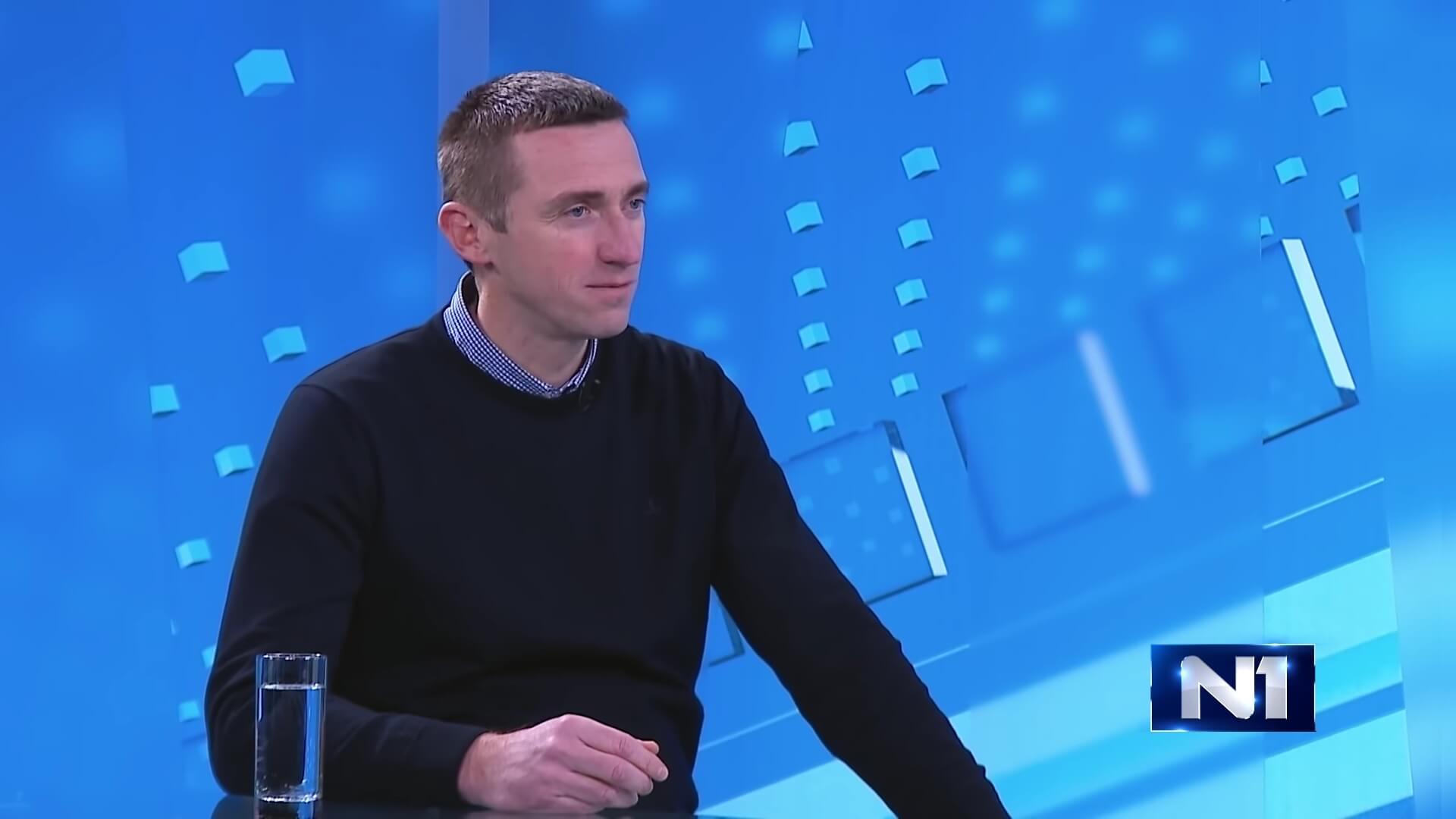
screenshot/ N1
Good idea but more talks needed?
„In Vukovar, parents do not choose the model of education that is imposed by politics, it is nowhere written in public“, said mayor Penava, as reported by N1.
Penava, a former member of the Croatian Democratic Union (HDZ), despite earning a new term in the recent local elections as an independent candidate, enjoyed support from Miroslav Škoro, runner-up candidate for Zagreb mayor elections, and the leader of the Homeland Movement (DP) supports Penava's idea.
„I lived in America for a number of years, in Hungary, I traveled the world... what is the difference between Serbian and Croatian mathematics? Is Argentina in Serbian in the northern hemisphere, and southern in Croatian? I don't get it“, said Škoro adding that segregation was done in malice with a tendency to divide children from the start.
„In Vukovar, the symbol of defense had priorities. Reconstruction of the water tower, and certain moves Penava did well in his last term (he wouldn't win elections if he hasn't), thinks that city needs to move on. I support him 100%“, concluded Škoro.
On the other hand, criticism is erected on national-level politics.
„I don't think that local officials are the ones who need to determine a way in which minority education will be conducted. Political trade is clear here, and I'm glad there is no longer just Serbian-Croatian trading coalition, but also another one“, said Dragana Jecov, a Croatian parliament member from the Independent Democratic Serb Party (SDSS) referring to the accusations of the right-wing that current coalition of HDZ and SDSS and is vile political trade.
Interior Minister Davo Božinović also said that while we need to work on erasing national, social, and political tensions, but this is a question that needs to be discussed more seriously.
Additionally, as N1 reported, the Ministry of Education pointed out that different models of education for Vukovar schools exist, and parents can choose which they find most suitable.
Accepting national differences or nationalistic uniformity?
Some improvements have indeed been seen in the city infrastructure, but Vukovar still remains a challenging place to live. Partly due to the tough economic situation, but also because of discrepancies among Serbian and Croatian residents. Earlier in June, there was even a violent incident when a 30-year-old Serbian member of the Grobari football fan group physically attacked a Croatian 13-year-old boy in front of a bakery for having a medicine mask with Croatian symbols.
„Sadly, this kind of thing happened too long in Vukovar, where people attack each other because of national disputes. Media aren't even introduced to some of these events. It is spread a lot, as evident by the constant police patrols around Vukovar high-schools where there are always police cars around“, said Vukovar police to Večernji List daily newspaper.
Such incidents, a misfortunate loose ends of the war, also come from the Croatian side. Earlier in May, a group of young men chanted anti-Serb slogans in Borovo Selo (close to Vukovar), a scene of heinous war crimes in the '90s), sparking condemnation from both president Milanović and the Croatian Government.
In that light, integrated schools might finally bring positive changes in regards to tolerance and peaceful life for Vukovar citizens. But again, not everyone sees the glass as half full.
Index.hr columnist Gordan Duhaček agreed in his column that Serbs and Croats don't need to go to separate shifts but warns how Penava isn't the guy that should unite them.
„Penava doesn't want to integrate Vukovar schools and end the troubling segregation in a way to ensure a better future for the whole city, but instead to impose his nationalistic, often anti-Serbian narrative as the official one. Penava wants that Vukovar Serbs bow down to his view of the Croatian state“, wrote Duhaček.
Duhaček also reminded the readership of the attempt and fail of the Danube International school that supposed to integrate pupils of both nations, an idea that spawned 16 years ago. But, the project failed, and Duhaček sees both Penava and SDSS leader Milorad Pupovac not feeling too sad about it.
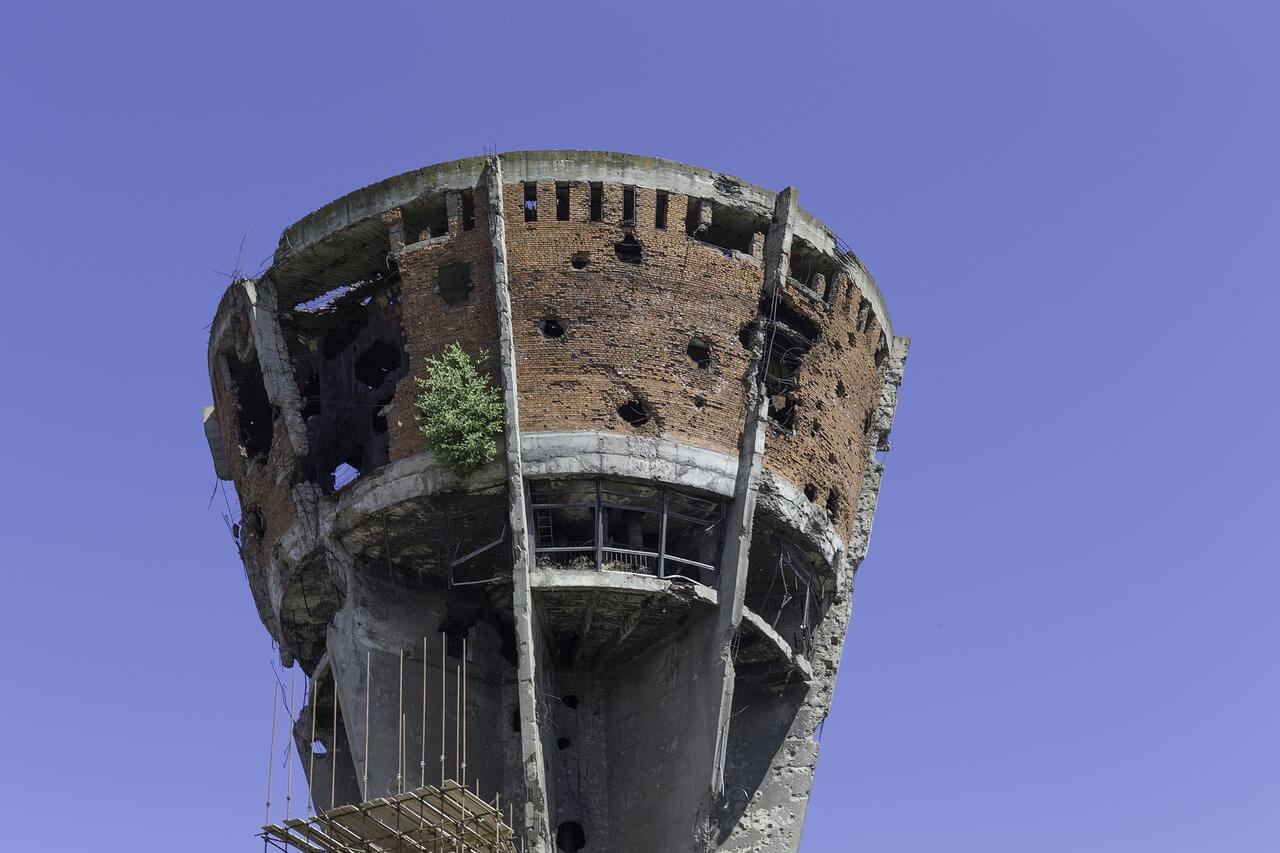
Iconic Vukovar water tower, pixabay
Questions on details
At the end of the week, the situation seems more confusing than clear. Is class integration a good idea? Could it save money for the city financially? What are some actual details of merging Croats and Serbians into one class? Obviously, Škoro is right that 2+2=4 in any math class around the world. But, troubling questions appear in subjects such as language and history. Croats and Serbs sadly have their own, different interpretations of historical facts, particularly when it comes to the last war, and while the speakers of two languages perfectly understand each other, some words do differ, and there is a different accent and spelling in the two formal languages. So, how can these issues be resolved? Would those two subjects remain in different shifts while universal subjects such as biology, math, or physics will listen in one merged classroom? Or will there be a different curriculum that would present both Serbian and Croatian history, Serbian and Croatian literature in that way, making Vukovar pupils more knowledgable in those areas than other pupils in the country?
Or some curriculum consensus on history could be reached, one that would satisfy both the Croatian and Serbian sides and thus truly open a doorway to the better understandings of the two nations in the future in perhaps the most nationally torn city in Croatia?
Obviously, Vukovar city authorities have some tensions with SDSS, but the city also has an expert associate for the development of civil society and national minorities, Siniša Mitrović in one of the City's departments. Did Mitrović manage to gain input from the Serbian minority in Vukovar about this merge? And how fast could the whole thing be realized? This autumn or maybe a bit later?
These are important and interesting questions that can only be answered either by mayor Penava himself or perhaps Josip Paloš, the director of the Vukovar City Education Department.
„Mayor Penava is in a lot of meetings and on fields, and his schedule is full. We will sadly not be able to answer you by your Friday deadline, but we will contact you at the earliest convenience“, said the lady at the Vukovar City PR service when I called them (and E-mailed) with a wish to arrange and conduct a brief phone interview.
While this article may present the current issues surrounding segregated education in Vukovar, this TCN reporter hopes mayor Penava will share more details about his plan on ending segregation in Vukovar schools and kindergarten with joint classes. If done right, this move can indeed be the way to a better, more peaceful future for Vukovar citizens.
Learn more about Vukovar on our TC page.
For more about education in Croatia, follow TCN's dedicated page.
New Zagreb Mayor Tomislav Tomašević: Sandra Benčić (Mozemo!) On First Moves
June 1, 2021 - With the new Zagreb Mayor Tomislav Tomašević soon coming to the office, Sandra Benčić of the green-left platform Mozemo! (We Can!) spoke to Index.hr about the first moves of the new administration.
Following intense post-first round campaigns in Zagreb for the second round of local elections, Tomislav Tomašević is the new mayor of Zagreb. Additionally, Tomašević's green-left coalition Mozemo! earned 23 seats in the City's assembly, and if the previously announced support of the Social Democratic Party (SDP) that has five, Mozemo! will have the majority in the assembly.
The new mayor is expected to take his seat by the end of this week, and as Index.hr reports, Sandra Benčić, the Mozemo! MP says that ZG Holding chief and directors can be removed from their position immediately.
However, first and foremost, the earthquake damages seem to be taking the lead.
„The most urgent thing is to prepare documentation for the reconstructions of kindergartens, schools, and institutions in the city ownership that were damaged in the earthquake. We have to do that as fast as possible because the deadline to pull money from the EU Solidarity Fund is June 2022. I'm afraid there will be a fiasco regarding how much will the State pull from the fund, but we can only take the money for estates in the city property, and the damaged kindergartens and schools are our priority“, told Benčić for Index.hr
She added that they plan to start an Office for Zagreb Reconstruction and establish mobile teams which will help citizens to fill in documentation and requests for the reconstruction of damaged homes.
Regarding the statement about the fiasco with the State pulling money from Solidarity Fund, the conflict with the government was sparked yesterday when PM Andrej Plenković talked to the press regarding Tomašević's victory. He said he didn't congratulate Tomašević yet, but he will and that he expects good cooperation.
„I see that Mozemo! is paraphrasing my message from 2016 when I said that we are changing Croatian Democratic Union (HDZ) so we can change Croatia. They say they are changing Zagreb to change Croatia. Clearly, they have something against this Croatia“, said Plenković, sparking controversy.
And Benčić is not the one to remain silent on such statements.
„Yes, we do have something against this kind of HDZ and evening HDZ with the State. They are not the State but an interest group that trapped our country. We want to see the country returns to all its citizens and that, of course, hurts them to the level that the prime minister allows himself these kinds of statements which, if they weren't malice, would be at minimal, unsmart“, said Benčić.
With the biggest number of votes in the history of mayoral elections in Zagreb, Benčić continues they are ready to justify this trust, and they start with work immediately.
„We are going with the financial revision of City's administration, restructuring City offices. We will do it step by step and connect offices while ensuring that functions and services need to deliver to the citizens. It should be noted that Zagreb used to have fewer offices, 17 until 2000 and then offices start to grow exponentially, only to put politically suited people to positions and raise their payments“, explained Benčić.
And the new Mayor Tomislav Tomašević also gave an interview on Monday. As Jutarnji List reported, Tomašević also talked about his plans to improve Zagreb and fulfill his promises, particularly with so many earned votes.
„This big trust is also a big responsibility. Citizens can expect that we will lead by example from the start. The city administration and authority will be based on three things: decency, modesty, and being at the citizen's service.
He also added that Mozemo! is considering filing a lawsuit against Miroslav Škoro for the filthy instigating campaign, as Tomašević and many other public figures described it.
„I wouldn't like this to happen to anyone anymore on any other elections in Croatia, regardless are we talking about a candidate from the right, left or center," commented Tomašević.
Although no direct link can be proved at the moment, Škoro's rhetoric could've been the fuel for the attacker that set fire to the Mozemo! election headquarters at Zagreb Contemporary Museum on the election night saying to the gathered that „they are communists“ and how he will „kill them all“, on which T-portal reported.
The elections are over, but will Zagreb continue to celebrate in such a majority as it did on election night? This is something only Tomašević on his new function can answer in the following months and years.
Learn more about Zagreb on our TC page.
For more about politics in Croatia, follow TCN's dedicated page.
Zagreb Local Elections 2021 Analysis: No "Ideological Referendums", Strictly Freedom And Solutions Wanted
May 30, 2021 - Following the turbulent public debate of the Zagreb mayor candidates that ended with Tomislav Tomašević winning the capital of Croatia, TCN reporter Ivor Kruljac brings you the Zagreb Local Elections 2021 Analysis, concluding that Zagreb is a city open for all ideologies but in constant search of quality solutions.
It's official – Tomislav Tomašević (seen on the lead image) is the new mayor of Zagreb, the 54th in a row when you look through Zagreb's history.
As a brand new chapter in Zagreb's local politics is turned, many are still uncertain about whether the former mayor Milan Bandić would lose or win another mandate if he hadn't suddenly and prematurely passed away earlier this year. Still, as Jelena Pavičić Vukićević, Bandić's successor joined the mayoral race and came in third place (despite being perceived as the keeper of Bandić's tradition), we could argue that is the indication that Bandić being suspected of corruption (and taken to court on several occasions) could've been the political end for him, had he lived to see the fight. But, of course, given Bandić's strong personality, that indication needs to be taken with a grain of salt, as many believe that not only would Bandić get to the second round of elections - but he'd even win them.
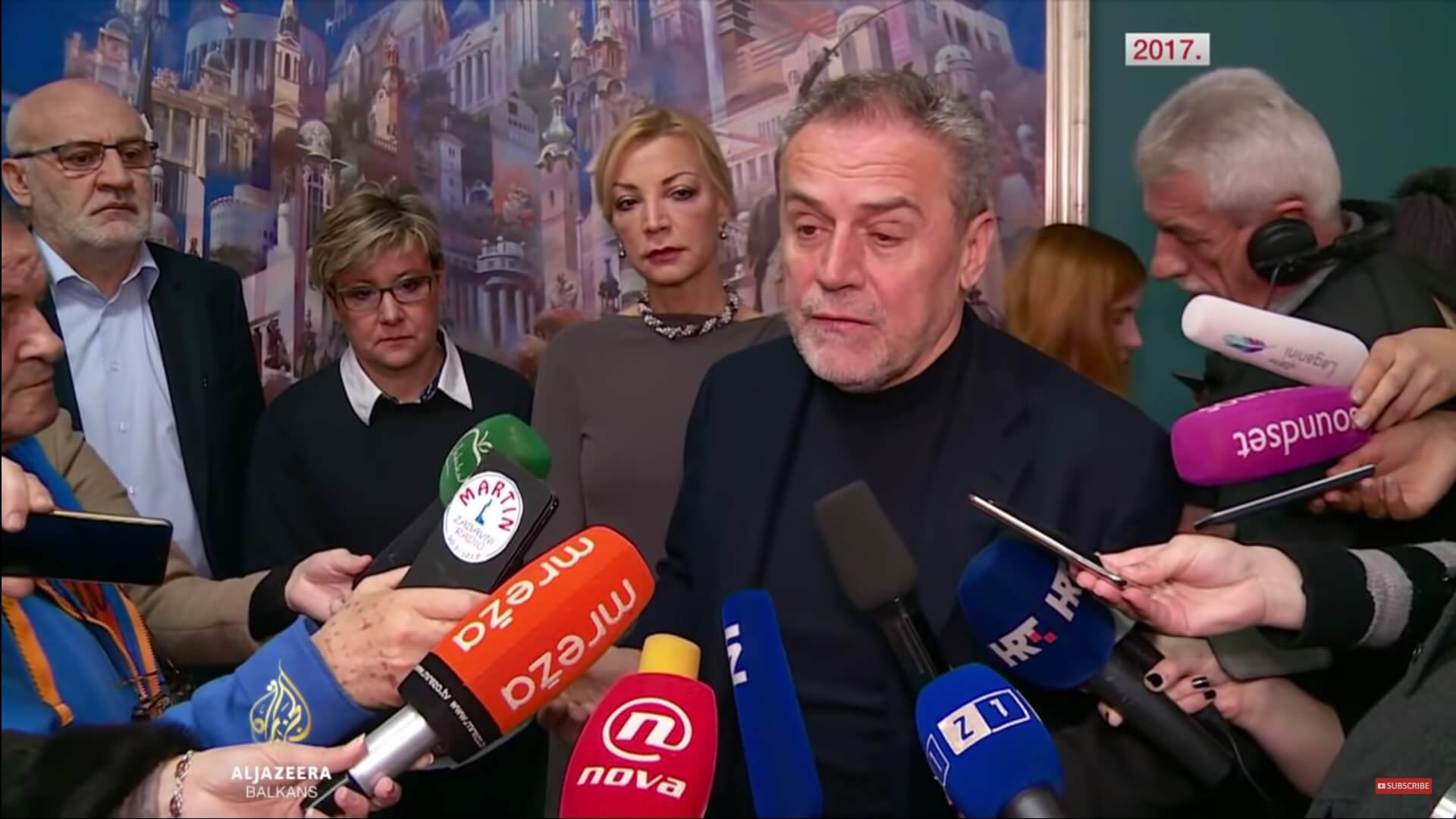
Former Zagreb mayor Milan Bandić, screenshot / Al Jazeera Balkans
A quick recap
In the first round, Tomislav Tomašević from the green-left platform We Can! (Mozemo!) earned a stunning 45,15 percent (147,631) votes. Not only was that twice as more than Škoro and Pavičić Vukičević combined, as N1 reported, but it was also more than with what Milan Bandić won in the second round of local elections back in 2017.
The mayoral race in Zagreb was highlighted with the question of who will succeed Milan Bandić and who will properly address all the debts and unfairly earned employment in the city administration as well as the overpricing of numerous city projects (such as the many fountains and the plagued Sljeme cable car). Additionally, there were the issues of the handling the mess of the Jakuševec junkyard, as well as handling the post-earthquake reconstruction of Zagreb's very heart. The only thing the majority of the candidates agreed to be good were the city's social policies, but they can still be improved.
However, as TCN previously reported, before even officially entering the second round, Miroslav Škoro turned the elections from practical questions of handling corruption to the age old and frankly boring ideological battle, accusing Tomašević and the We Can! (Mozemo!) platform of wanting to revive Yugoslavia.
''That's the extreme left, and it will be stopped in the second round, so help me God“, said Škoro on the night of the first election results.
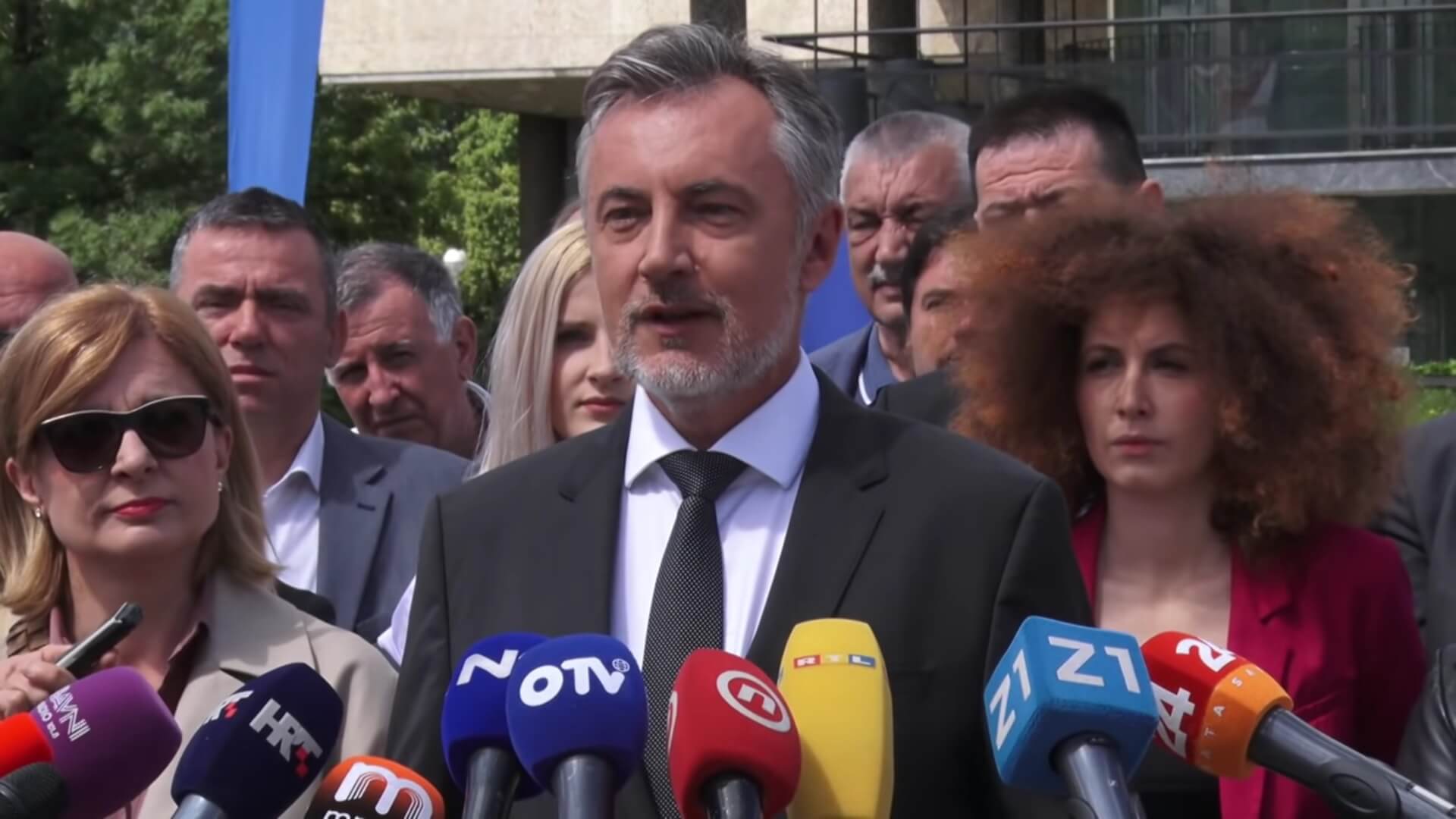
Miroslav Škoro, screenshot / Domovinski Pokret
This sort of rhetoric took everyone by surprise. Dražen Lalić, a sociologist and a professor at the Faculty of Political Sciences at the University of Zagreb, commented for RTL that Škoro himself is a radical candidate and that We Can! (Mozemo!) are neither extreme nor are they the radical left.
''Regardless of Škoro having a doctorate in economis, he's illiterate in the political sense; he doesn't know even the most basic terms. Extreme means outside of the system and not going to the elections. Radical actors are inside the system, and I think Škoro is radical. On the other hand, Tomašević and We Can! (Mozemo!) are very moderate in their attitudes; they're young people. There were no incidents and they are were moderate,'' said Lalić for RTL. He added that Škoro is probably aware that he had absolutely chance of winning but was still trying to reach the far-right electoral body.
24sata columnist Tomislav Klauški wrote about how Škoro's war with the perceived ''extreme left'' is quite literally the only thing in his entire programme. He concluded that such a move isn't going to work for Zagreb, which has never voted for far right options, and he also reminded that former mayor Milan Bandić, despite his many flaws, also came from the social-democratic political option.
''His filthy campaign from the first round, where his agency spread lies that Škare Ožbolt works ''for the Serbs'', where his news sites spread stories that Filipović's father is Serbian, and warned that Tomašević is a concealed right-winger, Škoro is now going further with that into the second wrong. As if Zagreb doesn't have enough problems to talk about,'' wrote Klauški on Monday after the first round.
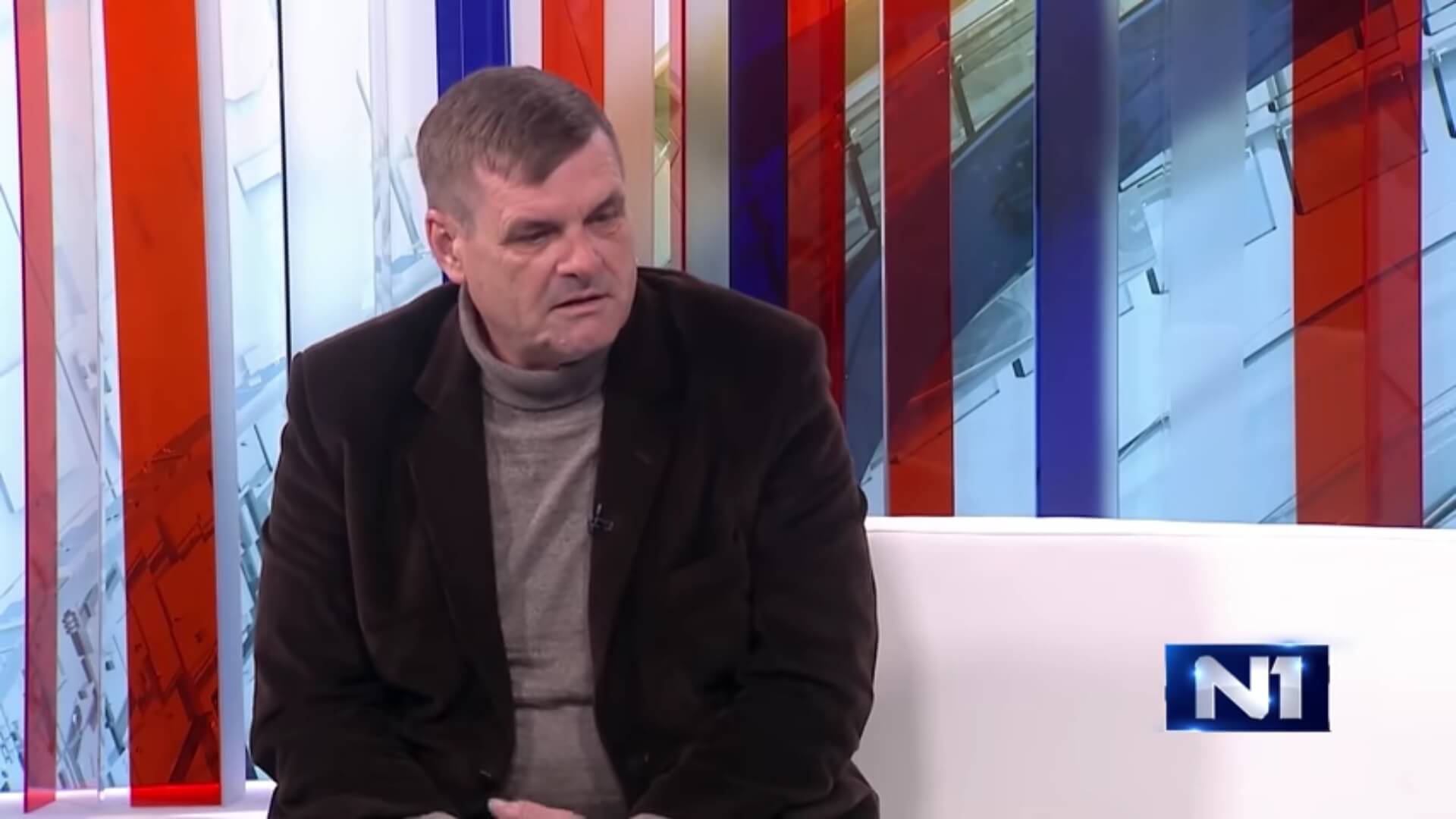
Dražen Lalić, screenshot / N1
Škoro then continued to push the narrative of these elections, declaring them an ideological referendum among right-wing and conservative circles. Škoro also accused We Can! (Mozemo!) of being foreign mercenaries working for famous philanthropist George Soros or wanting to revitalise Yugoslavia, and Škoro's associate Zlatko Hasanbegović stepped out into the Croatian public space calling the party a lesbian syndicate - weird indeed. Additionally, Nikola Grmoja (Most) stated for N1 that Mozemo are iPhone Soroshians, and accusations accompanied by rather odd name-calling saw a random generator on the internet designed to mock these terms by random options. Meanwhile, Tomašević continued his campaign by talking about solutions to the problems Zagreb is currently facing but occasionally making remarks on the accusations by his opponents and sometimes even throwing some accusations in Škoro's direction in return.
67% : 33% K.O.
This focus on actual problems Zagreb is facing and the refusal to dwell into ideological issues, along with the experience of activism for Zagreb's interests, proved to be the winning formula for Tomašević, beating Škoro with amazing 199,630 votes compared to Škoro's 106.300 votes. Not only did Tomašević beat Škoro by far, he also earned more than former mayor Milan Bandić did, and nobody has had more votes in Zagreb's mayoral elections to date.
Škoro lost his own so-called ideological referendum, but let's imagine for a moment that he actually won. Whether Škoro (or some other analysts who believed these elections would finally prove how Zagreb looks at things with an ideological eye) likes it or not, this "referendum" neither proves that Zagreb has turned to some radical left nor does it prove the opposite. First of all, only 45.7% of people voted on the second round of these elections. That's not even half of the total number of citizens that have the right to vote in Zagreb. Secondly, the culture and overall vibe of Zagreb truly tells us that Zagreb is diverse and very much open for everybody.
Zagreb - The pioneer liberal city for every idea
One thing we can say for certain about Zagreb's philosophy, if you will, is that Zagreb is proud to be a pioneer of development and a role model for the rest of the country. To illustrate that, Zagreb was proud that they'd be the first to use telecom lines, and by the time the rest of Croatia got telephones, Zagreb already had mobile phones. Being the capital city of Croatia, and the biggest city in the country, a centre of politics, education, science, culture, and more, Zagreb attracts people from all over the country and abroad, having bloomed into a multi-cultural city whose people have various ideologies and convictions.
When you look at ideological conflict in Croatia, which sadly doesn't seem to be anywhere near its end, it is often perceived that if you're a Croatian nationalist and conservative in Istria, you'll feel quite lonely indeed. On the other hand, left leaning progressives and liberals living in Dalmatia or Slavonia, areas that are known to be quite conservative, can't wait for a chance to leave those areas.
That being said, apologetics of all ideologies head to Zagreb, and Zagreb is a place where looking straightly from an ideological view, everyone is equally happy and miserable at the same time, but overall they're in a better position than in the rest of Croatia is. Before the pandemic, you had a regular event called ''Coffee with non-believers'' hosted by various venues such as Spunk bar or No Sikiriki. The event allowed for all atheists, agnostics, or even religious people unhappy with the breach of secularity by the Catholic Church in Croatia – to find those who think like they do, meet in person, talk, and have a good time.
On the other hand, in the Veliki Tolk pub in Opatovina, you have ''Right-wingers in the Pub'' which provides the same comfort and good times for the conservative-oriented people.
Regardless of what kind of genre of music you listen to, what movies you want to see, what kind of clubs you want to go to, mainstream pop, alternative rock, electronics, jazz... Zagreb's public sphere offers something for everyone.
Zagreb does have hospitals whose doctors refuse to perform abortions, but if there is any place a woman can have her reproductive rights respected in Croatia, then that place is Zagreb. Despite several violent homophobic incidents, the relaxing atmosphere of the LGBTQ Pride picnic on Ribnjak Park, and the support coming for the parade from the windows of Zagreb's buildings show that Zagreb is a safe place, and you won't feel alone because of your sexual preferences.
How these ideologies co-exist in being equally happy and miserable at the same time was perfectly demonstrated over the last two weeks. LGBTQ flags put out for the International Day Against Transphobia were torn down by vandals on the Victims of Fascism Square. A few days later, a pro-life initiative, Hod za Život“ (Walk for life) flags displayed on Ban Jelačić Square, were also quite quickly torn down. And the culmination of that event was seen on Saturday when the pro-life Walk For Life march was met with counter-protesters from Crveni Otpor (Red Resistance), which is pro-choice. So, as we can see, these ideologies create conflict at times, but more often, it's a peaceful co-existence. Equally miserable and happy at the same time, and still in a better position than the rest of the country.
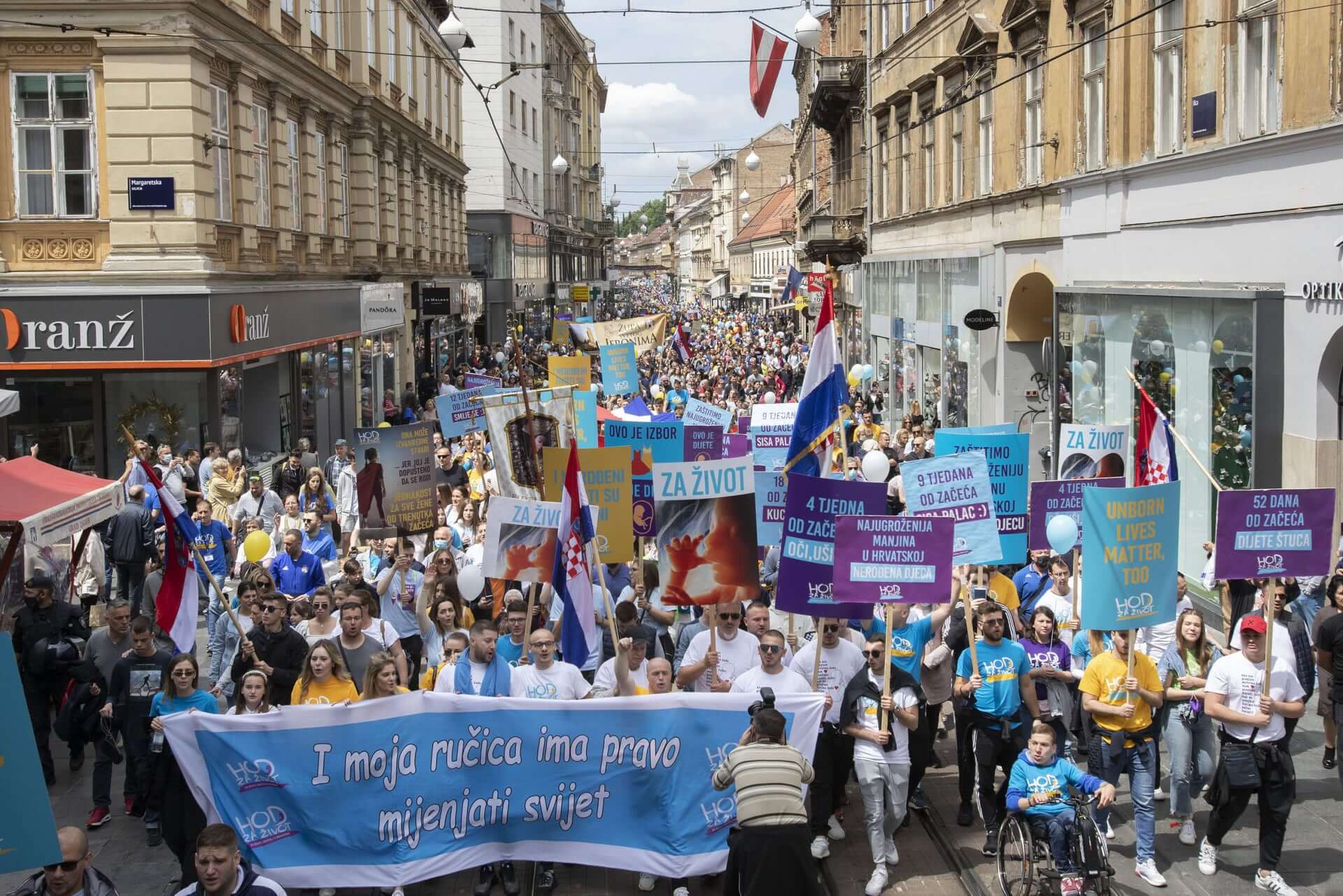
Pro-life march in Zagreb © Hod za život - Zagreb
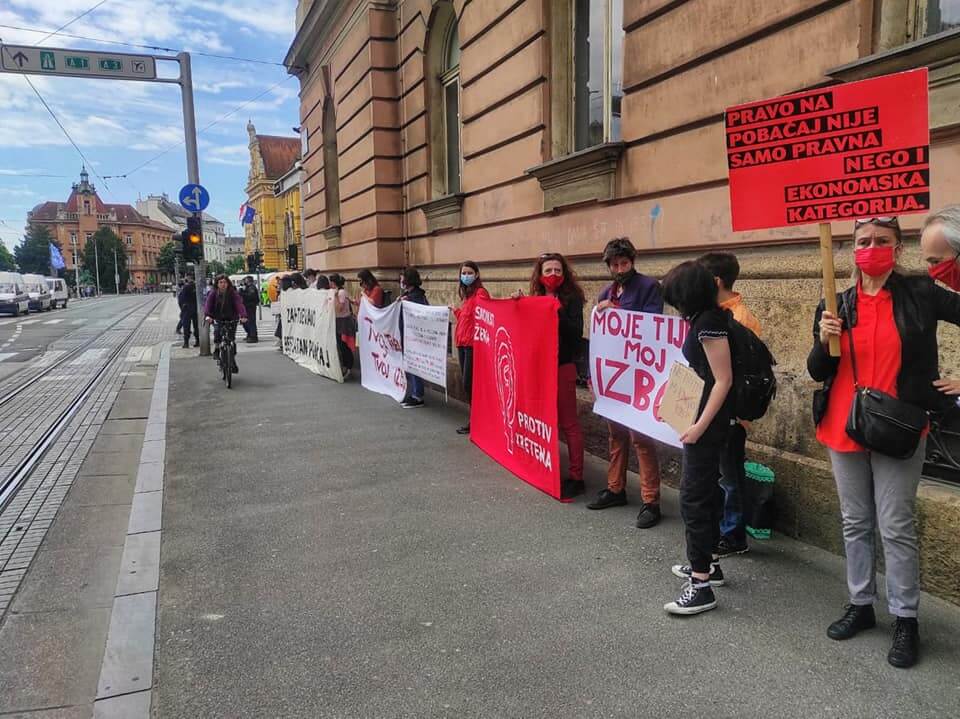
Pro-choice protesters waiting for pro-life march in Zagreb © Faktiv
Zagreb is liberal in its nature, courtesy of the growth and development it has seen, and even in the event that a conservative or even a radical conservative ever took the mayoral position, Zagreb wouldn't lose what it is in its soul.
Those who vote in Zagreb proved that ideological disputes are irrelevant, as long as freedom is respected by the candidate, and as long as you are not a radical and have a good solution for the city's problems, you're more than welcome to try and be a mayor.
Democracy is yet to be understood
That being said, there are some issues these elections highlighted for the political culture of Zagreb. First, Zagreb citizens that don't vote need to understand that voting is very important as our democratic right to have our say in what we want in Zagreb (as in the entire country). The freedom and all of the perks of living in Zagreb that citizens enjoy or don't enjoy are the direct results of politics, and any improvements or downfall in the city will come from politics. Having your say in these dynamic events is something that shouldn't be missed.
Democracy isn't a once-every-four-year event but a continuous practice of civic participation to make sure that promises before the election don't end up forgotten after the celebration.
Tomašević has said that "Zagreb is ours" (as is the name of one of the political parties in the Mozemo! platform), and so it's important for him to be open for the city's citizens, but also for citizens to be open to communicate with the local authorities to make a better community.
Learn more about Zagreb on our TC page.
For more about politics in Croatia, follow TCN's dedicated page.
Green-Left Mayoral Candidate Says He Doesn't Have Police Protection
ZAGREB, 27 May 2021 - The candidate of the Green-Left coalition for the new mayor of Zagreb, Tomislav Tomašević, said on Thursday that he had neither asked for the police protection nor did he have it.
Tomašević insists that the campaign in the run-up to the second round of the mayoral election in which he will face off Homeland Movement leader Miroslav Škoro is marked by hate and incendiary speech and fake news as never before.
Addressing the press in Zagreb today, Tomašević said that he had come to the venue of this news conference by tram and on foot just as he had done yesterday.
"I do not have the police protection, I have not requested it. Yesterday, you saw the stepped-up police presence as part of their regular activities at some of our gatherings," Tomašević said after on Wednesday police officers were spotted standing near the venue of Tomašević's news conference, which prompted media outlets and some politicians to speculate that Tomašević was given the police protection.
In response to reporters' questions on Wednesday, if he had been given police protection, Tomašević told reporters to ask police about that because security assessment was not what he and his colleagues did.
Concerning this topic, President Zoran Milanović said on Wednesday afternoon that he would bet that Zagreb mayoral candidate Tomašević had been receiving threats given his opponent Miroslav Škoro's incendiary campaign.
Later in the day, Prime Minister Andrej Plenković said the left parties in Zagreb kept quiet about the attacks on him and his HDZ party yet were now appalled by mayoral candidate Škoro's attacks. "Now you hear the aggrieved crying of all the people who otherwise keep quiet, and that's the phenomenon of the Zagreb election. You have the left which is now crying, yet is otherwise silent."
However, Tomašević said today that "nobody from the left is crying now".
"I do not have the police protection, I and my assistant have come together. There is no police here," Tomašević said adding that he feels safe and that he has not received any serious threat to date.
He reiterated that it was up to the police to assess security threats concerning the public gatherings of his political party and their sympathizers.
He said that when it came to fake news "there is a direct connection between" his opponent Miroslav Škoro and the funding of the fake news publication on social networks.
Tomašević said that he would consider taking possible legal action after the completion of the mayoral runoff.
"We are now focused on the second round of the elections," he added.
For more about politics in Croatia, follow TCN's dedicated page.
Highlights of the Week: 5 Big Events in Croatia from May 17-23, 2021
May 23, 2021 - TCN's highlights of the week. A look at the events in Croatia from May 17 through the selection of TCN's reporter Ivor Kruljac.
From Local elections to released details of the Euro 2020 championship strategy to the release of Zoran Mamić. Add Besana company attempting to boost its position in Croatia, and you have a truly exciting week. Here are the highlights.
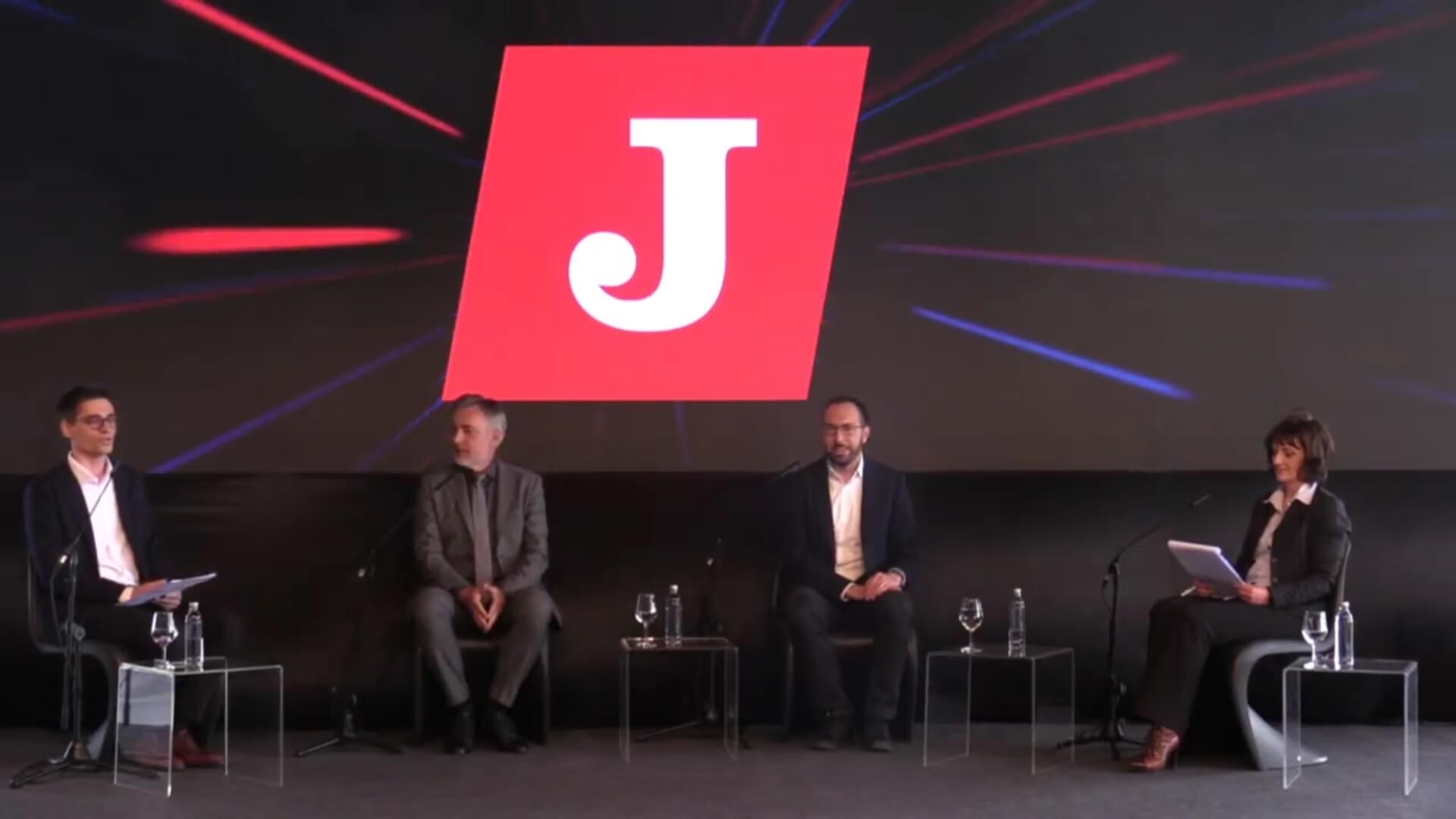
screenshot / Jutarnji list
Highlights of the Week: Zagreb mayor candidates Tomašević and Škoro had a debate ahead of the second round of elections
Jutarnji List invited on Friday mayoral candidates Miroslav Škoro (Homeland Movement), and Tomislav Tomašević of the green-left party We Can! to debate ahead of new elections.
In the first round of the elections, We Can! earned 147.631 votes (45.15%), while Homeland Movement had 39.789 votes (12.16%). Before officially entering the second round, Škoro declared Tomašević and We Can! party extreme left and pushed the narrative of elections as an ideological referendum among right-wing and conservative circles. Škoro also accused We Can! of being foreign mercenaries working for a philanthropist George Soros or wanting to revitalize Yugoslavia and Škoro's associate Zlatko Hasanbegović earlier in the week called We Can! a lesbian syndicate. Additionally, Nikola Grmoja (Most Party) stated for N1 that We Can! are Soroshians and accusations of their weird name-calling saw a random generator on the internet designed to mock these terms by random options of name-calling. Meanwhile, Tomašević continued the campaign talking about solutions to the problems Zagreb is currently facing but occasionally makes remark accusations while keeping it clean. The debate on Jutarnji List saw similar rhetoric from both candidates in their public performances, and overall, at least for the people of Zagreb, May 30 can't come soon enough.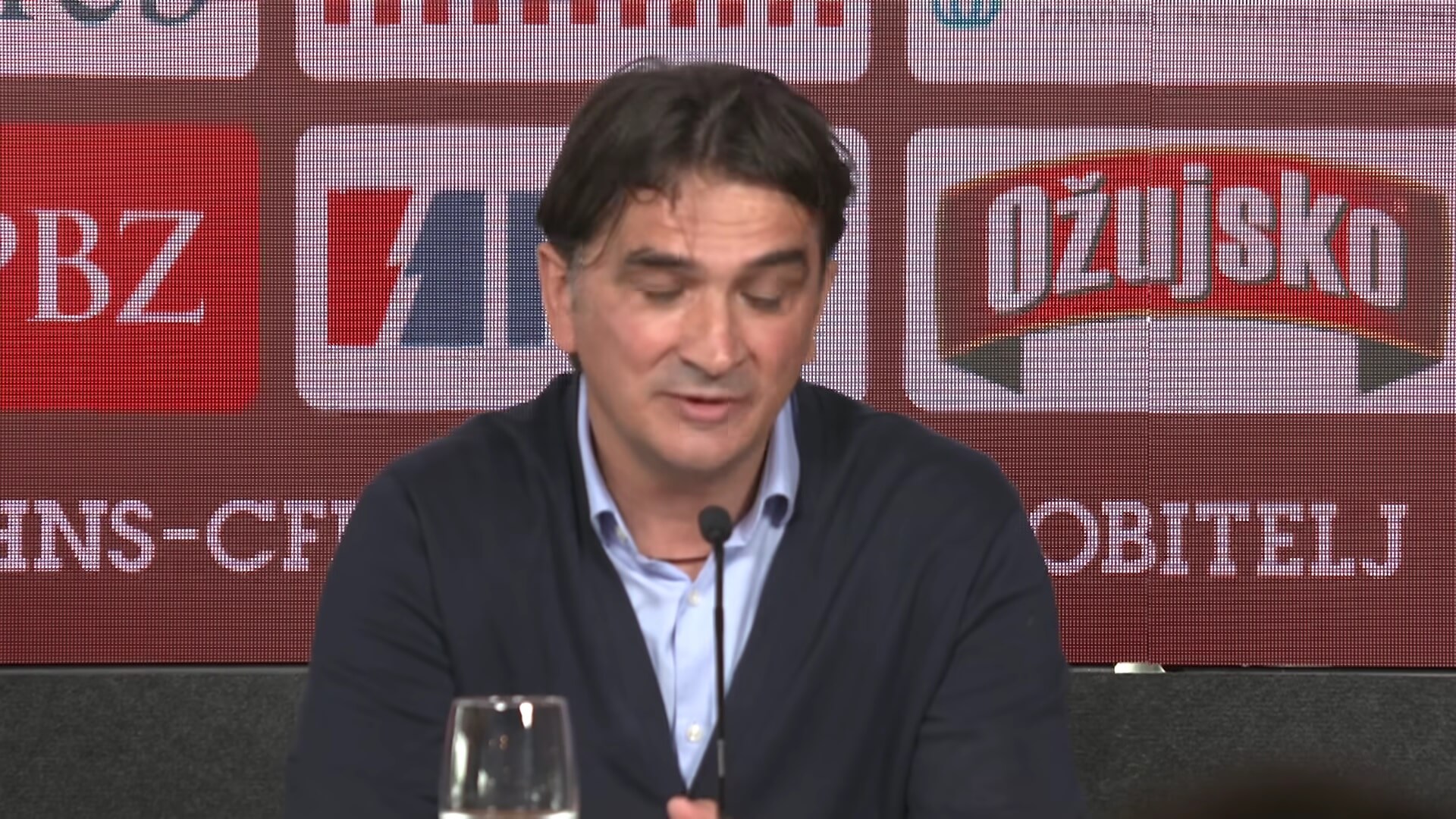
screenshot / Hrvatski nogometni savez
Highlights of the Week: Zlatko Dalić announces preliminary EURO 2020 Croatia player list
Coach Zlatko Dalic has announced the preliminary EURO 2020 Croatia player list on Monday. Luka Modrić (Real Madrid), Marcelo Brozović (Inter), Milan Badelj (Genoa), Mateo Kovačić (Chelsea) are some of the names that made it on the list.
The Croatia national team has entered the last month of preparations for the European Championship, which opens on June 13 at Wembley against England at 3 pm.

screenshot / RTL
Highlights of the Week: Zoran Mamić released from custody
Former Dinamo football coach Zoran Mamić will remain free while in Bosnia and Herzegovina; however, he will have to report to the police once a week, and his personal documents have been temporarily confiscated, the court in Bosnia and Herzegovina decided on Wednesday.
Zoran Mamić was arrested early Wednesday morning by officers from the State Investigation and Protection Agency (SIPA) based on an arrest warrant issued against him in Croatia.
After that, Mamić was handed over to the court in Sarajevo. Judge Branko Perić determined his status, including his citizenship of BiH. The judge ruled that Mamić would remain free with precautionary measures and was ordered to give in his personal identification documents.
The court did not discuss the matter of Mamić's extradition, considering that Croatia has not sent a formal request yet.
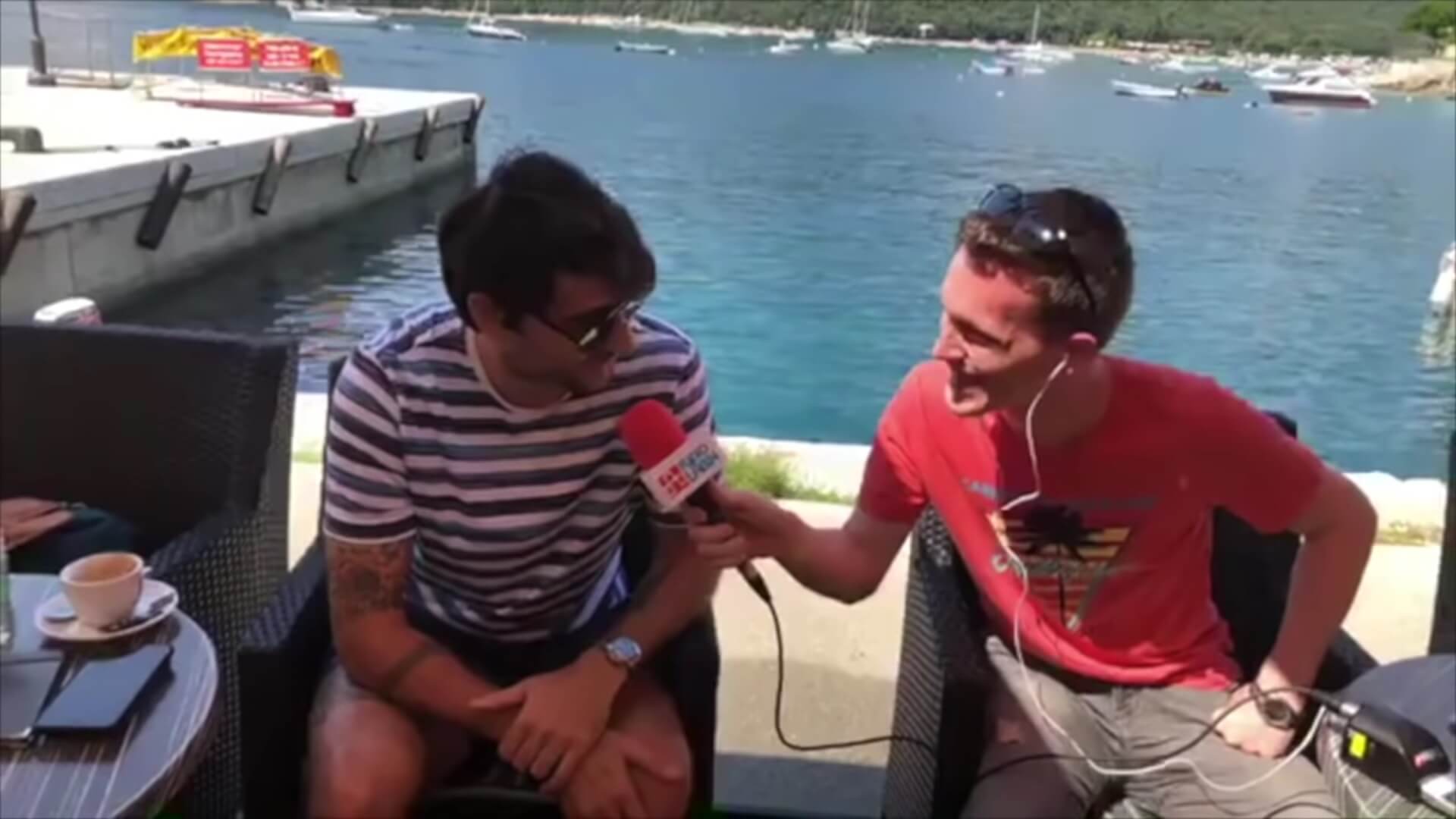
screenshot / Radio Labin
Highlights of the Week: Former football player Vedran Ćorluka new Croatian assistant coach
The new Croatia national team assistant coach Vedran Ćorluka was officially presented by coach Zlatko Dalić at a press conference in Zagreb ahead of EURO 2020.
Although there was a lot of speculation, Croatian football player Vedran Ćorluka officially announced the end of his playing career and was confirmed as the new Croatia assistant coach on Monday.
"I did not plan it, but the moment has come," said Ćorluka at the press conference at which coach Zlatko Dalić presented the list of players for the upcoming European Championship.

Pixabay
Highlights of the Week: Italian company Besana strengthening position in Croatia
The Italian company Besana, which is otherwise one of the strongest European companies in the production and processing of nuts and dried fruit, is working to further strengthen its position here in Croatia.
As TCN reported on Monday, the Italian company Besana currently has 50 subcontractors located in Croatia, from whom it buys about 100 tonnes of hazelnuts per year. But, much more can be expected if their plans go well.
To learn more about Croatia, have a look at our newly launched TC website.
For more about news in Croatia, follow TCN's dedicated page.
70 Cities Elect Mayors in 1st Round of Elections
ZAGREB, 18 May, 2021 - During the local elections held throughout Croatia on 16 May, a total of 70 cities managed to elect their heads in the first round of voting, while others will have mayoral runoffs on 30 May.
Of those 70 mayors, who clinched the victory in the first round of voting when they gained the support of more than 50% of the voters who turned out for the elections, 36 winners are from the Croatian Democratic Union (HDZ), or six fewer than in 2017, whereas 13 Social Democratic Party (SDP) mayoral candidates gained outright victory, or one more than in the first round of the local elections in 2017.
Seven female mayors winners in first round
Of those 70 mayors elected in the first round of the elections, seven are women.
According to the report provided by the gradonačelnik.hr portal, there is a rising trend in the election of mayoral candidates who are not members of political parties and who are introduced as independent candidates. Ten independent mayors were elected on Sunday.
Donja Stubica mayor reelected with support of more than 83% of voters
Of the winners with an outright victory on 16 May, the most successful mayor who managed to gain the largest support was independent Nikola Gospočić, who was reelected for another term in Donja Stubica with 83.01% of the voters who went to the polls voting for him. In the previous term, he was a member of the SDP party and left it before these elections.
Another independent mayor, Dinko Burić, won 82.15% of the support for his new mayoral term in the eastern city of Belišće.
In terms of the percentage of support, Darijo Vasilić of the regional PGS party ranks third, winning 80.26% of votes for another mayoral term in the City of Krk.
Of the regional parties, the Istrian Democratic Party (IDS) remains the strongest. In the first round of the voting, five IDS candidates were elected mayors.
Four biggest cities to have mayoral runoffs
Zagreb
Tomislav Tomašević of the We Can!, New Left, ORAH and For the City coalition took the lead in the mayoral race for Zagreb on Sunday, winning 45% of votes, and will face-off with Miroslav Škoro of the Homeland Movement party (12%) in the second round of the elections.
Split
In the biggest Croatian Adriatic city, Ivica Puljak (Centre) and Vice Mihanović (HDZ) will face off in the 30 May runoff. Puljak won 26.82% and Mihanović 23.23%.
Rijeka
In the northern coastal city of Rijeka, the current deputy mayor Marko Filipović (SDP, HSU, IDS, HSS) won 30.25% of votes, followed by independent Davor Štimac (16.10%).
Osijek
In the eastern city of Osijek, Ivan Radić (HDZ) won nearly 39% of votes, ahead of independent Berislav Mlinarević, backed by the Homeland Movement and Bridge (about 20%), and they will vie in the second round of the elections on 30 May.
For more about politics in Croatia, follow TCN's dedicated page.
Opposition Parties File Motion of No Confidence in Health Minister Vili Beroš
ZAGREB, 4 May, 2021 - Parliamentary opposition parties have filed a joint motion for a vote of no confidence in Health Minister Vili Beroš over the accumulated problems in the healthcare sector and scandals related to the minister, Social Democratic Party (SDP) leader Peđa Grbin said on Tuesday.
"The reasons for this move are clear to all citizens - the accumulated debts in the healthcare system resulted in the suspension of deliveries of medicines to hospitals at the height of the pandemic. There are also huge problems with the vaccination system, and we have learned of favourable treatment in the development of the cijepise.hr vaccination registration system," Grbin said.
"The development of this non-functioning system was awarded to people connected with Minister Beroš. There are also suspicious public procurement procedures at the Health Ministry such as one where IT services were awarded to a florist and tenders were fixed for former HDZ health ministers Andrija Hebrang and Neven Ljubičić, which have been cancelled but only after media started writing about them," he added.
"The Health Ministry is simply not functioning. There are no reforms, and the extent to which this affects people's lives could best be seen in a recent case at the Clinic for Tumors where citizens suffering from malignant diseases could not receive adequate care," Grbin said, naming Beroš as the person most responsible for this.
"We want Beroš to go because right now he has done nothing positive for the healthcare system, and all the negative things he has done pose a direct threat to people's health and lives," the SDP leader said. "His departure, however, will not be enough and we will all have to come to grips with the accumulated problems together."
Grbin said that a discussion on Beroš must be held within 30 days, and whether it will be held before or after the 16 May local elections "depends on Prime Minister Andrej Plenković and Parliament Speaker Gordan Jandroković."
The initiative was signed by all opposition groups in parliament except the Croatian Sovereignists, but they have announced that they will vote in favour Beroš's resignation, Grbin said.
MOST's Nikola Grmoja said that his party had been warning for a long time about the problems faced by the healthcare system, including huge debts to drug wholesalers and long waiting lists.
"Beroš, of course, is not the only one to blame, the whole government is responsible. With our signatures we also want to encourage a reform of the healthcare system. All of us in the opposition agree that changes are necessary and should be launched urgently," Grmoja noted.
Sandra Benčić of the green-left We Can! platform said that they supported all the reasons for a no-confidence vote in Beroš, but stressed that the responsibility for the crisis in the healthcare system and the poor management of the coronavirus pandemic mostly lay with Prime Minister Andrej Plenković.
"None of the ministers, and certainly not Minister Beroš, makes decisions on their own. They were not chosen as competent persons in their departments but were chosen based on their loyalty to the prime minister who ultimately makes all decisions. The prime minister cannot be exonerated by his purported unawareness of the scandals for which we seek Beroš's resignation. That's why we ask whether the country can be run by a prime minister who does not know or who does not get key information," Benčić said.
Homeland Movement MP Stjepo Bartulica said that the Croatian healthcare system was too politicised. "There are countless problems and the possible resignation of Minister Beroš will not change things much. We have insisted from the start that the healthcare system should be governed by market principles because now we don't see any mechanisms that will bring about change to the system as this government resists structural reforms," he said.
For more about politics in Croatia, follow TCN's dedicated page.
Parliament Debates Work of State Commission for Public Procurement Supervision
ZAGREB, 16 April, 2021 - The Homeland Movement (DP) on Friday strongly criticised the State Commission for Supervision of Public Procurement Procedures (DKOM), saying its head Maja Kuhar "built her career during the term of the (Zoran) Milanović government" and calling Croatia one of the most corrupt countries globally.
"The key problem with the DKOM is that its name does not befit it. It does not supervise public procurement procedures but only resolves appeals in those procedures," DP MP Daniel Spajić said during a debate on the commission's work in 2019.
He claims that many evidently corrupt procedures, like the one for the digitisation of the health system, were not appealed against and are therefore not handled by the DKOM.
Spajić claims that Croatia is one of the most corrupt countries in the world.
That would not be possible if we had a proper public procurement procedure, he says.
While other caucuses commended the DKOM's work and its report, MP Bojan Glavašević of the Green-Left Bloc (ZLB) said the report was a technical document without any data on effects. There is little information regarding the DKOM's anti-corruption activities and there is not one conclusion, description of activities, or recommendation, he said.
MP Marija Selak Raspudić (MOST Party) commended the report, adding that further improvement is possible.
A fundamental improvement would be to see how much state administration bodies had to pay appellants due to poorly conducted public procurement procedures, she said.
We also want a black list of public administration bodies which have made the most errors in absorbing EU funds and we want to know who the professional appellants are, Selak Raspudić said.
MP Rada Borić (ZLB) warned of the large number of procedures with just one bidder, saying this was the greatest corruption risk.
Social Democratic Party (SDP) MP Željko Pavić referred to the detail that there was an increasing number of appeals to documentation on public procurement and asked whether that problem could be resolved if there was a special department at the DKOM in charge of checking documents.
MPs from the ruling Croatian Democratic Union (HDZ) praised the document. MP Branka Juričev Martinčev (HDZ) was pleased with the increased number of projects using EU funds and that the DKOM had handled these procedures well.
Systematic training necessary
Most lawmakers agreed that systematic training is necessary for participants in public procurement procedures to avoid errors.
In 2019 the DKOM had 1,365 appeals, including 1,209 new ones, which is a mild increase compared to 2018.
The majority of appeals referred to the selection phase (66%), however, there was a growing trend in the number of appeals related to procurement documents (32%), which can largely be attributed to a single fee to launch an appeal of HRK 5,000, regardless of the value of the procurement.
The DKOM's decisions can be disputed before the High Administrative Court and in 2019 that court quashed less than 3% of the DKOM's decisions.
For more about politics in Croatia, follow TCN's dedicated page.
Opposition Accuse Government of Trying to Buy Votes From Pensioners and Young People
ZAGREB, 15 April, 2021 - Parliamentary opposition parties on Thursday criticised the government's plan to pay a COVID supplement to pensioners and a tax refund to young people in the run-up to local elections as vote buying.
Arsen Bauk of the Social Democratic Party (SDP) told reporters in the parliament building that the government "has obviously sorted its priorities to ensure the best possible election result" for the ruling Croatian Democratic Union (HDZ).
"We support a COVID supplement for pensioners, even before elections. I think the Croatian democracy is mature enough and that this will not result in voters voting en masse for the HDZ," Bauk said.
Homeland Movement MP Stjepo Bartulica said that Prime Minister Plenković often expressed his disdain for populists. "I see a great dose of populism in the timing of this measure," he said.
"We are all equal in Croatia, but obviously some groups are more equal than others, especially with elections coming up. In principle, I am not against helping the pensioners, but the way in which the government runs its policies actually increases cynicism in Croatia," Bartulica said.
Bridge's Božo Petrov noted that the government had promised several years ago that the living standards and monthly incomes of pensioners would rise considerably, suggesting that the measures proposed by the government should remain permanent.
Bojan Glavašević of the Green-Left Bloc said that "the pensioners and young people, as vulnerable groups, need systematic rather occasional assistance."
Unlike the opposition, the HDZ's Ivan Ćelić disagreed that this was an attempt at vote buying for local elections. "Let me remind you that a month before elections the (SDP) government of Zoran Milanović gave away electricity vouchers of HRK 200, which can be seen in the same way as the COVID supplement," he said.
(€1 = HRK 7.5)
For more about politics in Croatia, follow TCN's dedicated page.
Green-Left Bloc, Homeland Movement Criticise National Recovery Plan
ZAGREB, 13 April, 2021 - MP Sandra Benčić of the green-left bloc said on Tuesday that Prime Minister Andrej Plenković was "lying that the National Recovery and Resilience Plan is completed," adding that it was an unambitious and incompetent programme which recycled 20-year-old reforms and projects.
Speaking to the press, Benčić said that MPs, who are due to debate the document on Wednesday, received only its summary because experts were still fine-tuning it.
She said the plan contained no links between investment in innovation and investment in the economy.
"The lack of ambition and incompetence of this programme is extremely worrying," Benčić said, adding that the plan would not help the economy and society to either recover or become more resilient to either climate change or other challenges of the 21st century.
Homeland Movement: Plan shows government has no daring for brave decisions
The whip of the Homeland Movement party, Stjepo Bartulica, said the summary of the National Recovery and Resilience Plan showed that the government lacked the daring for brave decisions and that Plenković had once again failed to adopt a serious strategy.
Bartulica said he saw no willingness for structural reforms and that the plan should have given more consideration to the demands and remarks by the enterprise sector as it was the one creating added value.
He said the plan also reflected no will to reform the health system, adding that the problem in healthcare was not doctors' expertise but how the system was managed and the monopoly of the Croatian Health Insurance Fund.
Speaking of totalitarian symbols, Bartulica said either all should be outlawed, including those of "communism and the totalitarian Yugoslavia," or that they be allowed as free speech.
For more about politics in Croatia, follow TCN's dedicated page.


